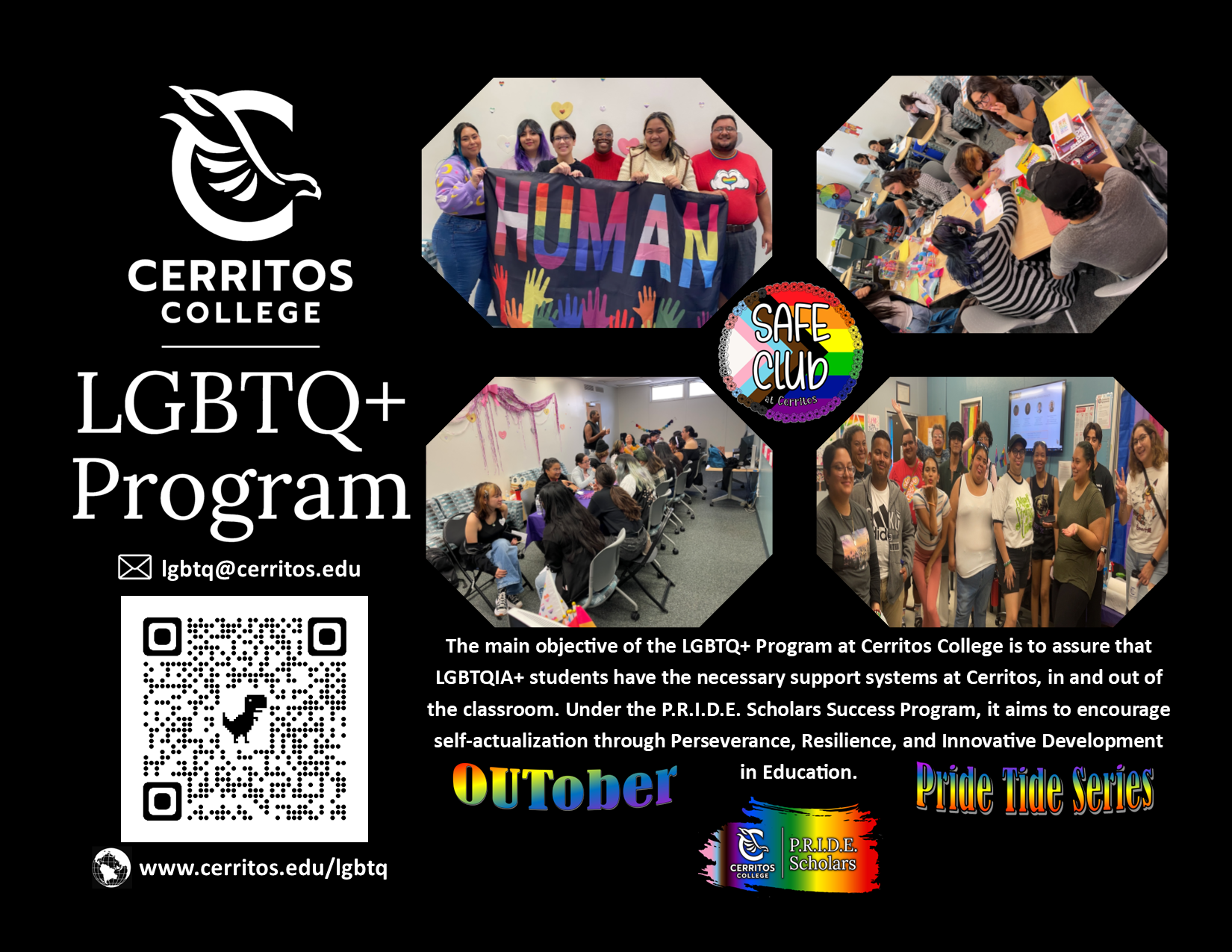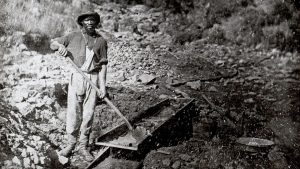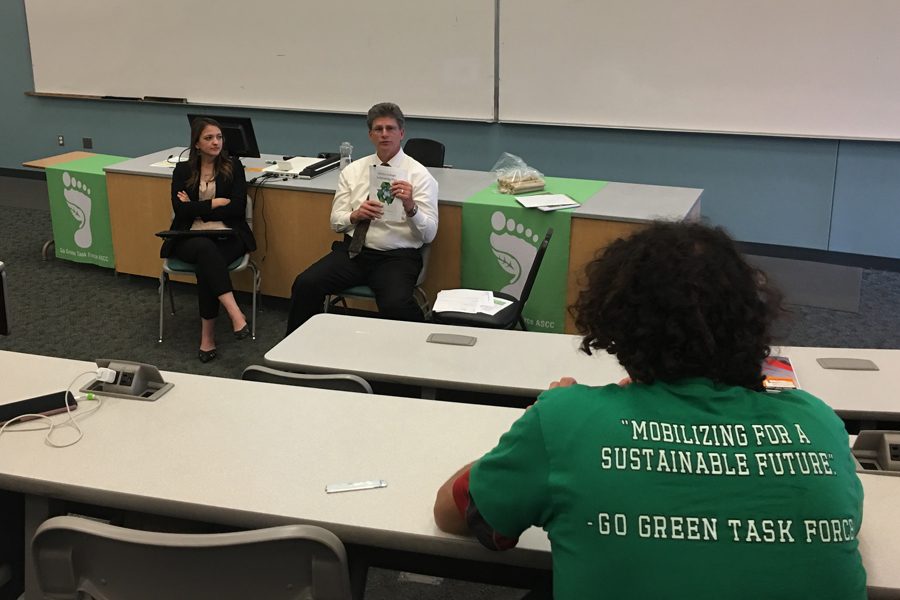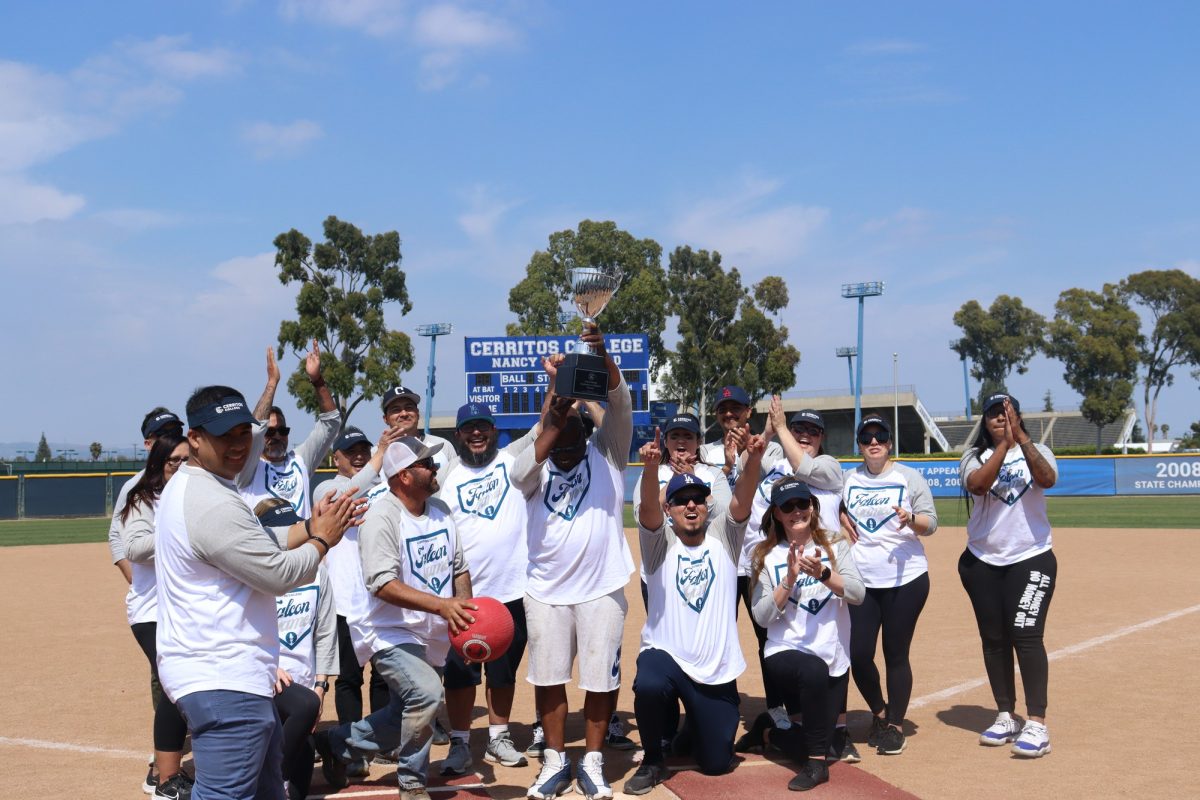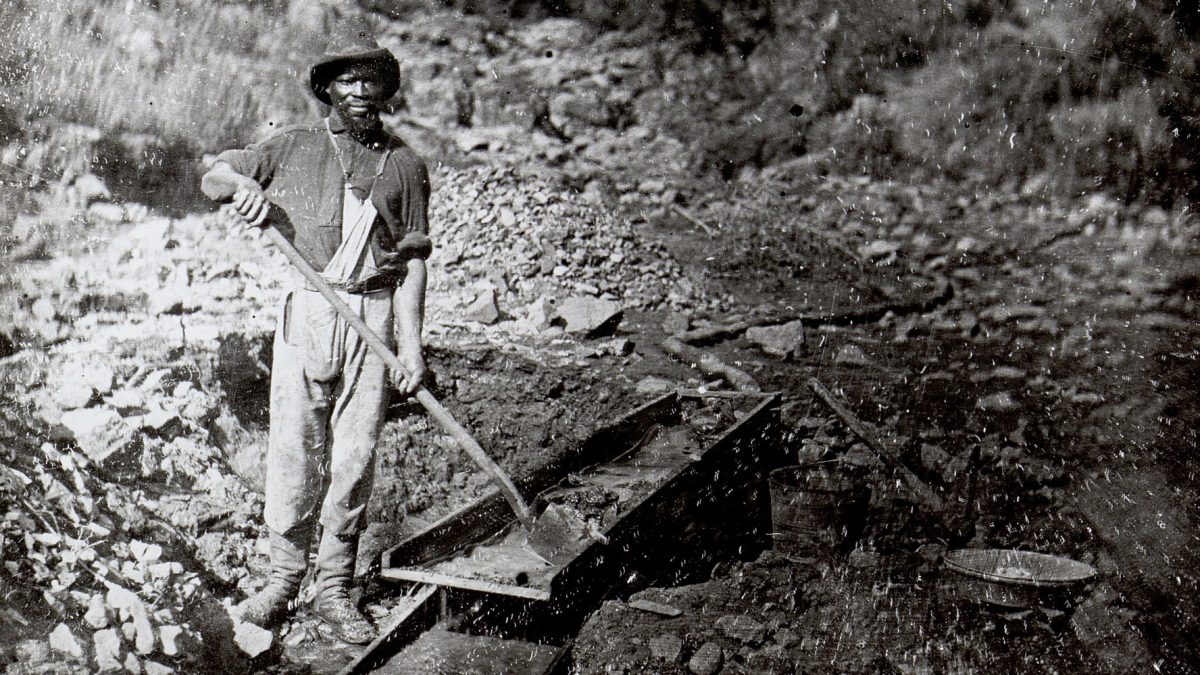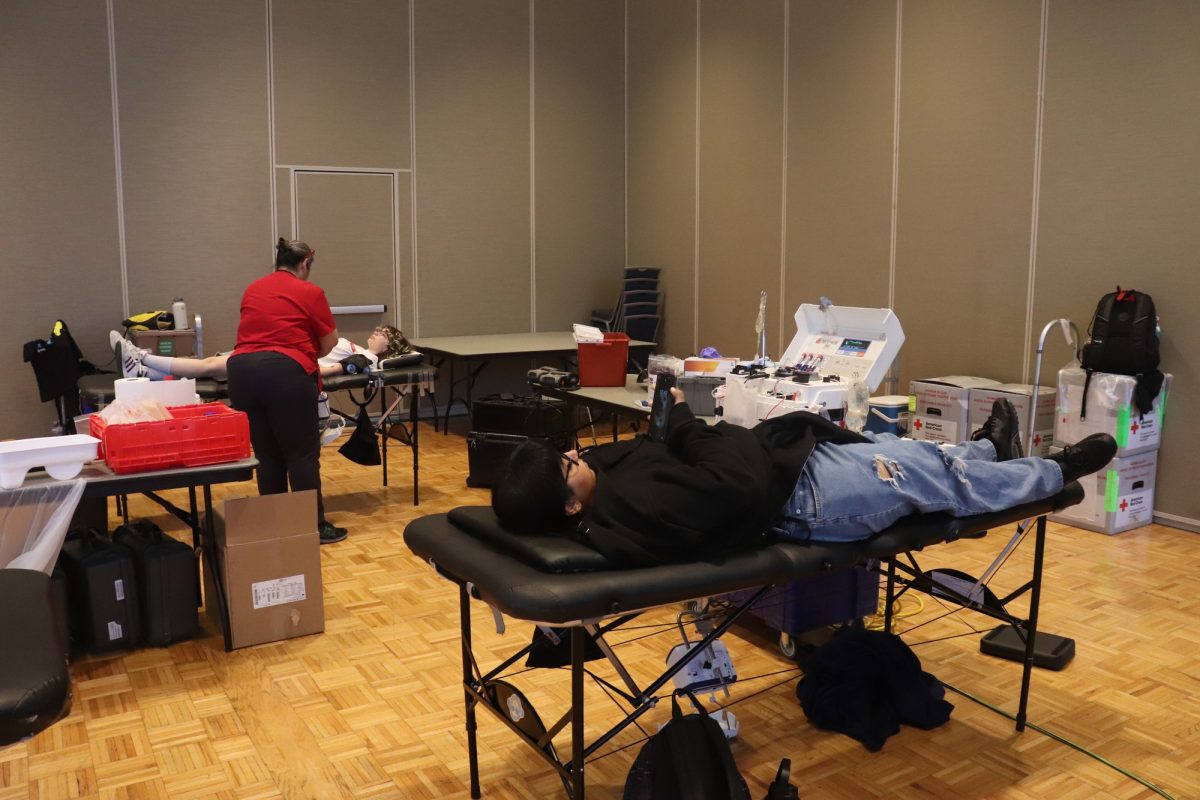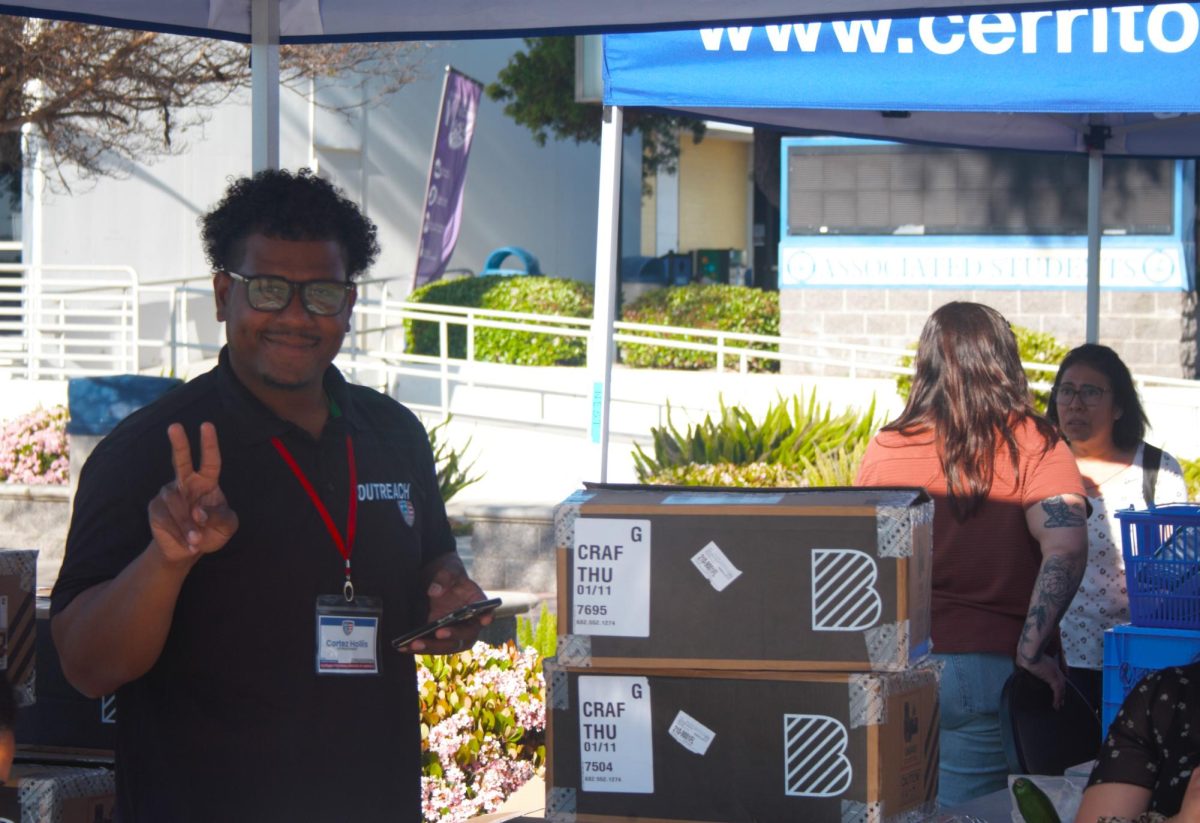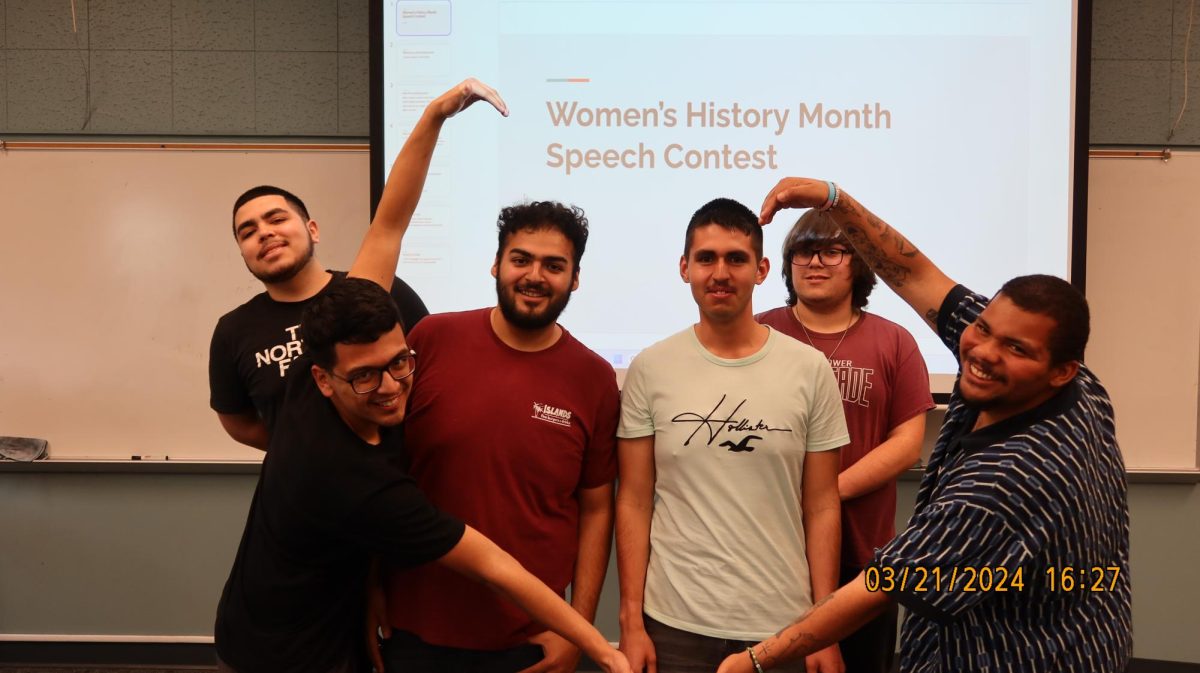Did you know Cerritos College is the first college in the state to receive government funding to use reclaimed water on campus?
This is all part of a 1.4 billion dollar project to use reclaimed water for campus landscaping.
To clarify, the reclaimed water this is not applied to water that comes from the bathrooms, or drinking fountains.
In observance of Earth Week, Vice President of Business Services Dr. David El Fattal and Aline Gregorio, assistant professor of geography held a panel discussing the plan for a greener Cerritos College and the progress it has made over the years.
Cerritos, a green campus
Although many student may not know, Cerritos College is a campus that has been progressively going green.
Besides the reclaimed water for landscaping, there are electrical car charging stations on campus for both people of the college and the community.
There are also four hydration stations on campus inspired by Go Green.
The future plan is to implement hydration stations in all buildings.
Additionally, the new parking permit machines are solar operated and the new blue lights on campus appearing in the summertime will be solar based but not completely, so the phones can always work.
There are also plans of gardens to be implemented on campus.
Assistant Professor Gregario stated. “I think Cerritos College is doing a lot already with the reclaimed water, energy master plan, recycling program, and water stations. I would like to see an expansion of all of that such as a thriving recycling program, hydration stations in every building and in outside spaces. I want to see an expansion and continuation of everything.”
Dr. David El Fattal mentioned an integrated energy master plan.
He hopes we can look at energy on campus in a holistic way.
In the past, Fattal was invited to speak at California Higher Education State Conference where he presented his energy master plan along with an architect and engineering firm.
Cerritos college was chosen for a pilot program for 113 colleges in state to model and create a template for establishing energy use goals for future planning and construction.
The funding was from Southern California Edison to identify initiatives to implement on existing conditions for energy use goals.
Although we can create a master plan, the plan will not work without people actually understanding the importance of sustainable practices.
Ecological Footprint
Gregorio expressed, “The very unit of change is ourselves.”
She mentioned the “Ecological footprint”, or human impact on the Earth’s ecosystem.
Looking at how much good productive land is required to sustain individual lifestyles is a shocking amount due to the amount of waste produced by humans.
“If you take a moment to visualize, the average American footprint it’s nine soccer fields, which can be good land.”
The US is reigned as a top footprint since the 70s but things changed last year when China took that ranking.
This is still not a good sign because China has four times the population as the US.
Millenial Spotlight
Gregorio also discussed millennial and their attitudes about eco-friendliness.
Another name for millennials is “Generation Nice”.
Millennials are defined as technology generation, and not necessarily environmentalists.
Contrary to this attitude, when research firms look at what millennials care about, they can see that millennial really do care more about the Earth than past generations.
A big part of this is, they recognize global warming is really happening and favor strict environmental policies such as renewable energy.
They show loyalty to good companies and 88 percent of them choose those actively over competitors.
They also care more about meaningful work than high pay.
Interestingly, they have the highest percent of strict vegetarians, 18 percent being college students and many attempt to grow their own food.
They believe biggest change is from people not governments.
They reuse bags, turning off lights, and conserve water.
Transportation and food is the biggest resistance from students due to “cultural blockades”.
For example, meat cultural blockade because many students are from a culrual background that eats meat at home.
As for transportation, almost anyone can obtain a license.
Millennials connect cars and driving with independence/style so they want to drive “cool” car even if it’s bad for the environment.
Students like Adrian Gomez, ASCC Senator and part of Go Green Task Force is an example of a eco-friendly millennial.
“I bike everywhere and I don’t eat meat. I’m a millennial and like the panel discussed, I don’t like to label myself as a vegetarian. But I just don’t eat meat, I think about the amount of water it takes to raise a cow, how much a pound of meat cost, and how much it shrinks when you cook it, compared to beans where they absorb the water, and grow. When you boil them, you are left with more mass than meat.
I would like to see a change in food resource sustainability. Citrus trees should have more vegetation on campus and we should grow more food on campus to spread the idea to the students that it is very possible to live legitimately off of land and not have to go to the market to buy food. People fight about space, but we only need food, water, shelter and we complicate out lives when we think we need more [materialistic] things,” he expressed.
Going Green: The Future.
Cerritos College will continue to work towards a more green environment even after Earth week.
Gregario stated,”For the future, I hope we can have a more centralized location for cultural change in organizing Earth Day. Right now, all of the sustainable events are coming from the ASCC and it would be great to see even more effort and dedication coming from faculty and students.
“This earth week shows that we have a lot because if you look at the program a lot of faculty from different departments is involved so that shows a lot of promise.”

